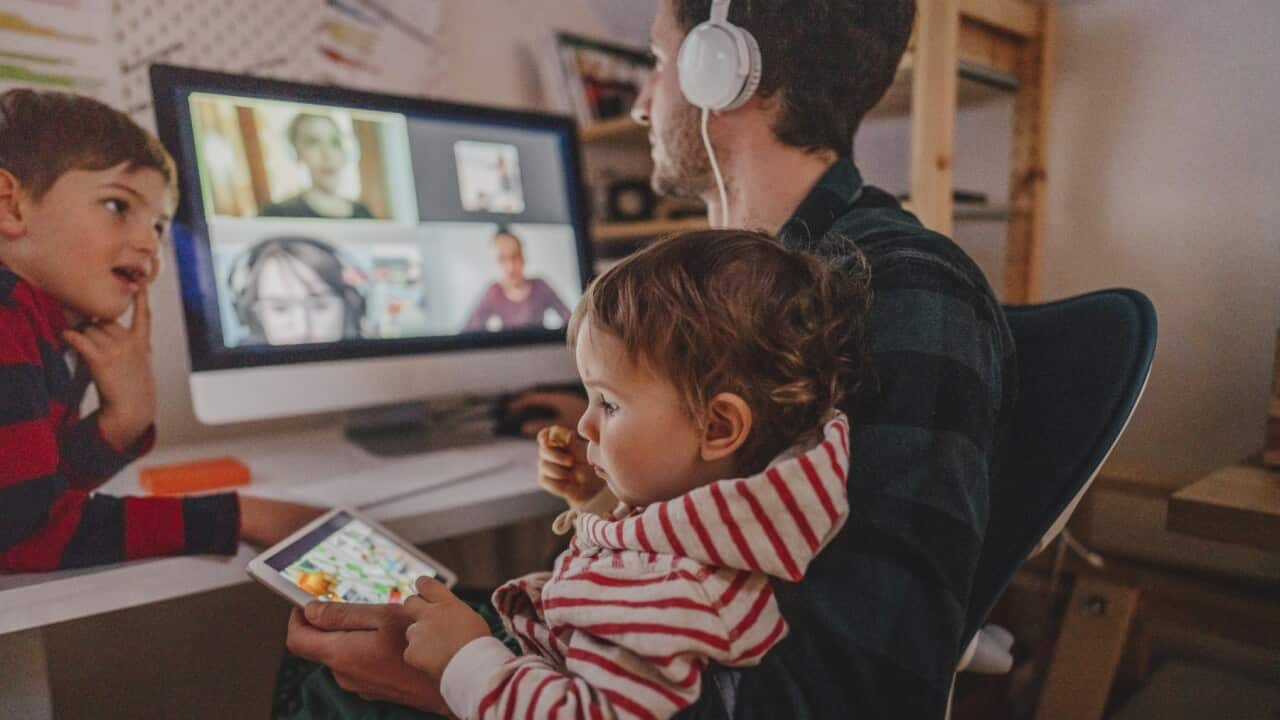According to the latest research from the University of Sydney Business School, the majority of Australian employees would like to continue working from home post-COVID-19.
- Employees are asking for a hybrid remote-office model after the COVID-19 pandemic
- Fostering a high trust culture within a remote workplace can improve employee morale and productivity
- Flexible work arrangements can have a negative impact on employees who are not successful in managing the boundaries between professional and personal life
The survey’s co-author, associate professor Matthew Beck, says the impact of COVID-19 on businesses is different from past disruptions because of its long-lasting effects.
People have acquired habits around flexible work arrangements and organisations have seen that working from home is a viable option.
The study found that during the pandemic the number of remote workdays doubled for managers and almost tripled for clerical work.
It also looked at the time and money that has been saved when people stopped travelling to work.
People in Australia had approximately saved around four billion dollars in time costs, and another two billion dollars in monetary costs that are associated with travelling.
Worrells Solvency & Forensic Accountants employs around two hundred people in 33 locations across Australia.
Worrells Melbourne partner Ivan Glavas, says, at the beginning of Melbourne’s 16-week lockdown, he expected a dip in productivity, yet the opposite happened.
Because staff weren’t wasting their time travelling, staff weren’t wasting their time communicating with each other unnecessarily, so their productivity and efficiency went up.

Source: Getty Images/South agency
I think moving forward people will, more than likely, 50 per cent of the time work from home and 50 per cent of the time work from the office.
A survey conducted by one of the largest digital events and conferencing providers in Australia, Redback Connect, found that 86 per cent of participants want some degree of their working from home arrangements to stay in place permanently.
Redback Connect CEO and founder Jeff Downs says while people like the flexibility of working from home, they also want face-to-face collaboration.
I would say that the largest percentage of people wants to work from home only two or three days a week.
Jeff Downs observes that trusting your workers to self-manage their working day leads to more satisfied employees.
People like being accountable, and when you give people that level of trust, they try not to disappoint you, they want to earn that trust.

دورکاری برای افرادی که خط فاصل میان مسایل کاری و زندگی خصوصی را رعایت نمیکنند، حیثیت شمشیر دولبه را دارد. Source: Getty Images/Momo Productions
Business coach at Outcomes Business Group Cindy Drake, says it is up to business owners to adapt to the way they manage and motivate their teams.
Business owners have stopped saying you need to do this and that and started having more conversation around your timeframe and your situation.
However, working from the comfort of your home can be a double-edged sword for those who have difficulties switching off and tend to prove their high output by overworking.
Nazanin Majidi works as an Iranian speaking business advisor for the New South Wales Government program,
She says working from home allows her to focus.
I’m more productive when I’m at home because I don’t take breaks, and also in the office there are a lot of other distractions.

اعتمادسازی میان کارگر و کارفرما یکی از مسایل پایه در کار کردن از خانه است. Source: Getty Images/Jose Luis Pelaez Inc
He thinks business leaders have to rise to the challenge and ensure they are doing everything possible to reduce the stress for employees.
Employees are becoming tired, but they are less inclined to take sick leave because they are already staying at home.
People have different reasons for seeking flexible work, but it is important to remember that not all tasks can be performed remotely.
Often the nature of your job determines the successful negotiation of flexible work arrangements.
Having clear ideas about how you can achieve your set targets under flexible work arrangements could help employers to trust you with the expectations of your role. Business coach Cindy Drake suggests visiting the if you are not sure how to negotiate flexible hours or if you are not aware of your working rights during the COVID-19 pandemic.
Business coach Cindy Drake suggests visiting the if you are not sure how to negotiate flexible hours or if you are not aware of your working rights during the COVID-19 pandemic.

Source: Getty Images/Valeriya Tikhonova
Their website has got some really great tools and great practical tips and advice with examples about how you can negotiate these different situations.






